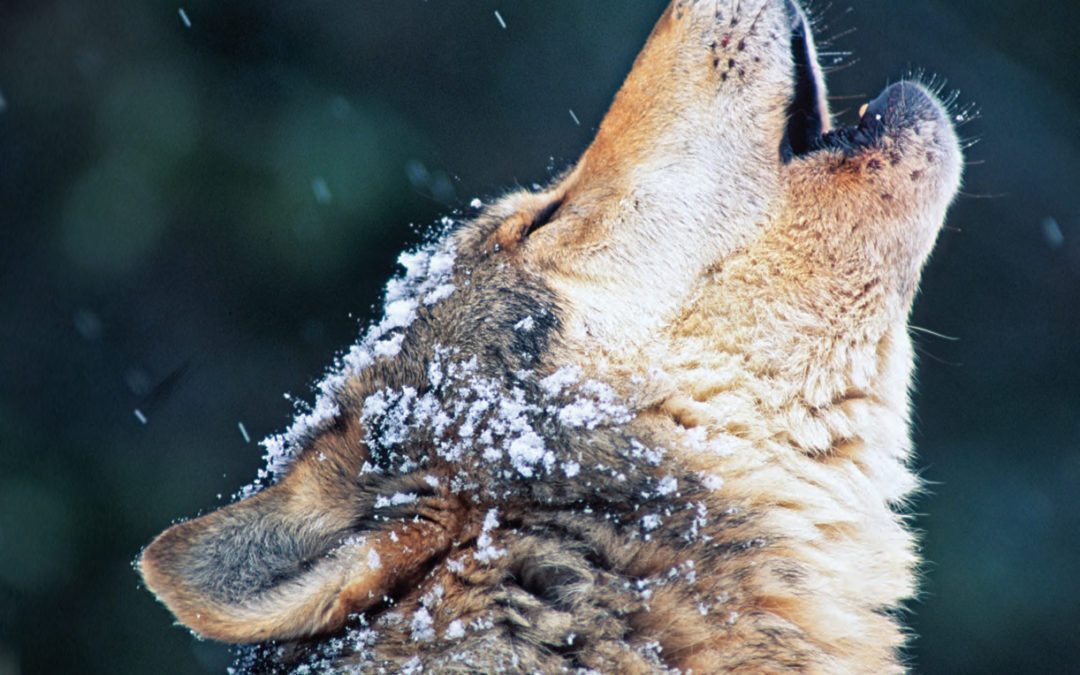by Liv Larson Andrews—
A wolf killed my uncle’s favorite llama. She was old and weak, with dark brown hair and kind eyes that would follow his truck up the dirt driveway. For many years my uncle has kept eight or nine llamas on his plot of Montana hillside. One winter, this wolf, large and hungry, killed the elder female of his flock.
Hearing my uncle tell the story of spying that wolf on his land, witnessing its power with his own eyes, is like hearing the fable of Little Red Riding Hood for the first time. What big eyes you have…
I’ve always known that my parents hail from fairly different backgrounds, even though they both grew up Lutheran. My mother was raised in a Minnesota farmhouse full of books with hymns rising from a grand piano. My father and his brothers tumbled all over the mountains of western Montana, hunting and fishing, working the land and contributing to life in their small town. I always assumed that the Montana contingent of my family had the least amount of life experience in common with me. While I grew up in a quiet Midwestern suburb, my cousins grew up working stints in the lookout tower, watching for forest fires in the Mission mountain range.
A few years after hearing my uncle tell the tale of the llama killed by a wolf, I moved west myself. Spokane, Washington, where I now live, does not see many wolves in its municipal boundaries. But like most communities in the American West, it is home to people who hold strong opinions about wolves. It wasn’t until coming to live in this geography that I learned of a group that wished for the total abolition of a species from a given territory: People for a Wolf Free Idaho. This group lobbies for the interests of folks like my uncle: ranchers, farmers and property owners who have suffered loss on account of wolves. I need to be frank. I find myself on the flip side of this discussion. A friend and I once quipped that we would be quicker to support a group called Wolves for a People Free Idaho.
To say the least, some differences of opinion are present at the table when my family sits down for Christmas dinner.
A WOLF IN THE MANGER
Ah, Christmas—that season of peace and joy, full of good cheer and neighborly kindness. Except when family comes to dine. Then we dig our trenches and wait for that one topic (or several) that no one agrees upon to find its way into our conversation. It’s lucky we don’t leave with mashed potatoes in our hair. In the corner of the room sits the manger, the scene of Christ’s birth, replete with pacified animals dwelling in calm as they adore the Savior born in a feeding trough. But our tables are much more tense. What but family ties can bring together a group so different? If there isn’t out-and-out arguing, it’s all awkward fork-clinking and averted eyes. We avoid the thing we know is hanging above our conversation, but our deep difference doesn’t go away just because it is left unspoken.
How do we move through these tough moments as people of faith? If they don’t arise at Christmas, surely some other gathering has found us in the company of people with whom we deeply disagree. We fear becoming the wolf in the manger if we speak our minds—upsetting the peaceful scene by bringing up something difficult. Most cultural models we have for engaging difference are predatory in tone, biting and devouring others in order to “win.”
In the center of the manger is another way: Christ calls us to unity and reconciliation. The incarnation of Jesus bridges cosmic difference; heaven and earth find oneness in his presence. Perhaps it is fitting that the gatherings we call together to commemorate this great gift also cross bridges—whether we like it or not. How does the meaning of the manger call us to live today? How does bridge-crossing really happen if our neighbors or friends or loved ones hold views we find repugnant?
Liv Larson Andrews is the pastor of Salem Lutheran in Spokane, Washington. She lives with her husband and two sons.
This article is excerpted from the December 2017 issue of Gather magazine. To read the full story or more like it, subscribe to Gather.


